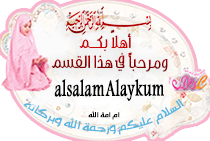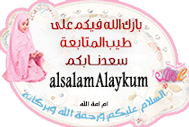Some brothers say “Taqabbal Allah (May Allah accept it)” after the end of the prayer, and I know that it is an innovation, but I would like to know more details: why is it an innovation? Who among the scholars said that it is an innovation? Because many of the ignorant, when you tell them that it is an innovation, get upset and say that it is just a du‘aa’ (supplication) asking that Allah accept your prayer!
Praise be to Allah Firstly:
The basic principle with regard to rulings on matters of worship is that they are either Sunnah or bid‘ah (innovation), i.e., they were either narrated from the Prophet (blessings and peace of Allah be upon him) or they were not. Whatever was the practice of the Prophet (blessings and peace of Allah be upon him) is Sunnah, and whatever was not part of the religion at the time of the Prophet (blessings and peace of Allah be upon him) and his Companions is not part of the religion for us today.
Abu Dawood (4607) and others narrated that al-‘Irbaad ibn Saariyah (may Allah be pleased with him) said: The Messenger of Allah (blessings and peace of Allah be upon him) said: “Whoever among you lives after I am gone will see great disputes; you must adhere to my Sunnah and the way of the Rightly Guided Caliphs. Hold on to it and cling fast to it. And beware of newly-invented matters, for every newly-invented matter is an innovation and every innovation is a going astray.” Classed as saheeh by al-Albaani.
Al-Haafiz Ibn Katheer (may Allah have mercy on him) said:
Ahl as-Sunnah wa’l-Jamaa‘ah describe every deed or word that is not proven to be from the Sahaabah as an innovation (bid‘ah), because it were good, they would have done it before us, for they did not leave any good deed but they hastened to do it. End quote.
Tafseer Ibn Katheer (7/278-279)
Shaykh al-Fawzaan said:
The innovations that have been introduced in the field of acts of worship in the current era are many, because the basic principle concerning acts of worship is tawqeef [i.e., they can only be known through divine Revelation and sound texts of Qur’an and hadith, with no room for personal opinion]. So no act of worship can be regarded as Islamically prescribed except on the basis of evidence. So long as there is no evidence for it, then it is an innovation, because the Prophet (blessings and peace of Allah be upon him) said: “Whoever introduces something into this matter of ours that is not part of it will have it rejected.” Narrated by al-Bukhaari (2697) and Muslim (1718).
The acts of worship that are done nowadays, for which there is no evidence, are many indeed… End quote.
Al-Bid‘ah ‘Anwaa‘uha wa Ahkaamuha, in Majmoo‘ah Mu’allafaat al-Fawzaan (14/15)
Secondly:
Shaykh Ibn ‘Uthaymeen (may Allah have mercy on him) was asked:
What is your opinion on shaking hands and saying “Taqabbal Allah (May Allah accept it)” immediately after finishing the prayer?
He replied:
There is no basis for shaking hands or saying “Taqabbal Allah (May Allah accept it)” after finishing the prayer; that was not narrated from the Prophet (blessings and peace of Allah be upon him) or from his Companions (may Allah be pleased with them). End quote.
Majmoo‘ Fataawa wa Rasaa’il Ibn ‘Uthameen (13/171)
He was also asked:
There are some people who add things to the adhkaar following the prayer, such as when some of them say “Taqabbal Allah (May Allah accept it)”; or after doing wudoo’ they say “Zamzam.” What do you think?
He replied:
This does not come under the heading of dhikr; rather this is a kind of du‘aa’, when a person finishes (the prayer) and says “Taqabbal Allah mink (May Allah accept it from you).” Nevertheless, we do not think that people should do this, either after wudoo’ or after the prayer, or after drinking Zamzam water, because if you do such things, it may become something that people do regularly and think it is prescribed, for lack of knowledge. End quote.
Majmoo‘ Fataawa wa Rasaa’il Ibn ‘Uthaymeen (13/211)
However, it should be noted that one should be wise and gentle in explaining such matters, concerning which many people may be unaware of the implications, because they think that it is simply a du‘aa’ and does not come under the heading of innovation. Part of good etiquette in such matters is to respond to the other person’s du‘aa’ for you by saying a du‘aa’ for him, or by saying to him “Jazaak Allahu khayran (may Allah reward you with good)” and the like, then gently explain to him the Sunnah with regard to such matters.
At-Tirmidhi (2738) narrated from Naafi‘ that a man sneezed next to Ibn ‘Umar and said “
Al-hamdu Lillah wa as-salaam ‘ala Rasool Allah (praise be to Allah and peace be upon the Messenger of Allah).”
Ibn ‘Umar said: “And I say: Praise be to Allah and peace be upon the Messenger of Allah, but this is not how the Messenger of Allah (blessings and peace of Allah be upon him) taught us; rather he taught us to say: ‘
Al-hamdu Lillah ‘ala kulli haal (Praise be to Allah in all circumstances).” Classed as hasan by al-Albaani.
See how Ibn ‘Umar (may Allah be pleased with him) explained to him that such words were not objectionable in and of themselves; rather what was objectionable was ignoring the Sunnah of the Prophet (blessings and peace of Allah be upon him) and choosing these words instead, or saying them habitually as if they were Sunnah.
Think about the kindness shown to the one who made the mistake, and how Ibn ‘Umar softened his heart, whilst pointing out to him the Sunnah to be followed in this situation.
See also the answer to question no.
1884
And Allah knows best.
 Ruling on saying “Taqabbal Allah (May Allah accept it)” after finishing th
Ruling on saying “Taqabbal Allah (May Allah accept it)” after finishing th رد: Ruling on saying “Taqabbal Allah (May Allah accept it)” after finishing
رد: Ruling on saying “Taqabbal Allah (May Allah accept it)” after finishing رد: Ruling on saying “Taqabbal Allah (May Allah accept it)” after finishing
رد: Ruling on saying “Taqabbal Allah (May Allah accept it)” after finishing قد تكوني مهتمة بالمواضيع التالية ايضاً
قد تكوني مهتمة بالمواضيع التالية ايضاً





